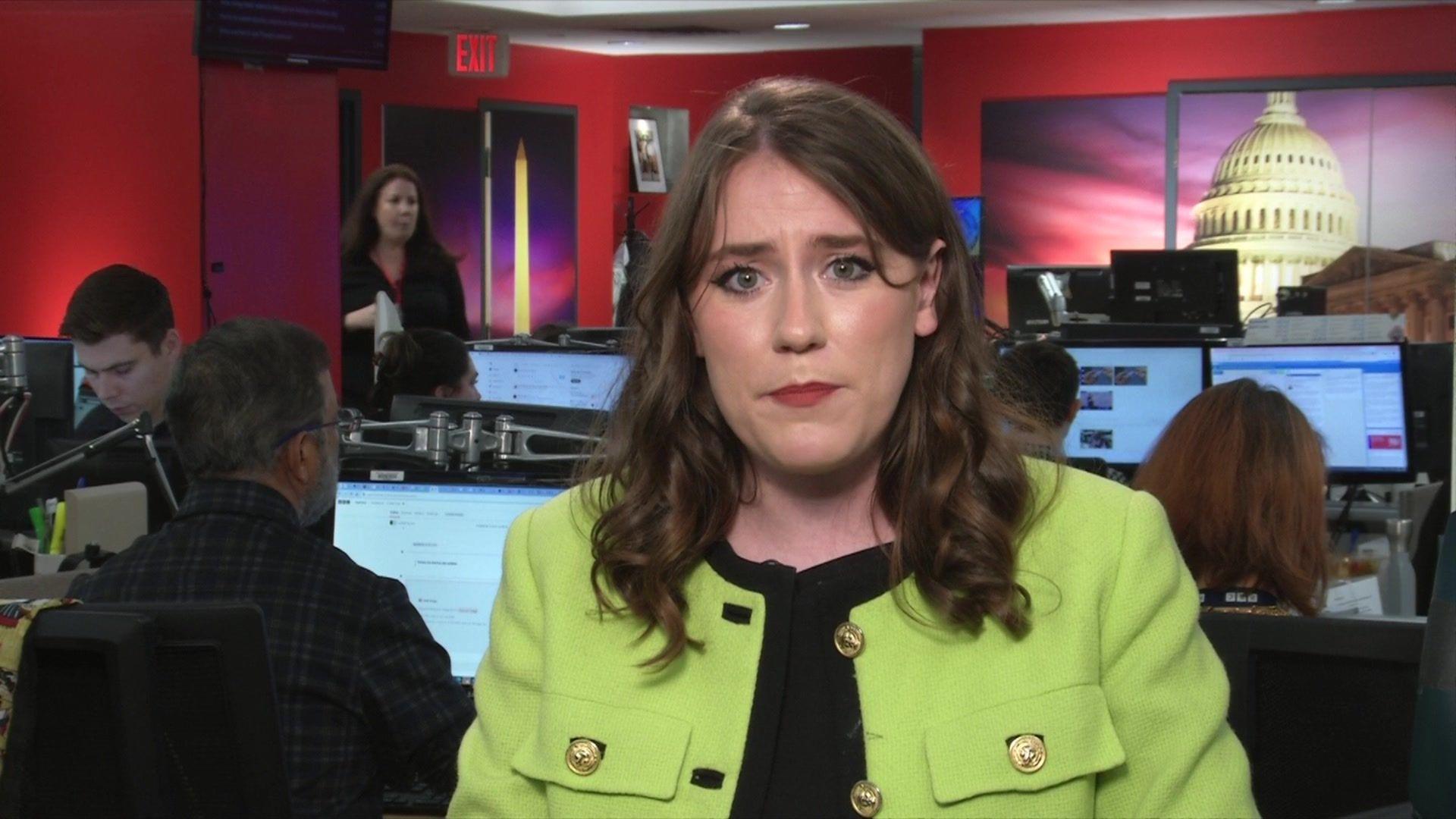US voters call for reform after challenges dropped
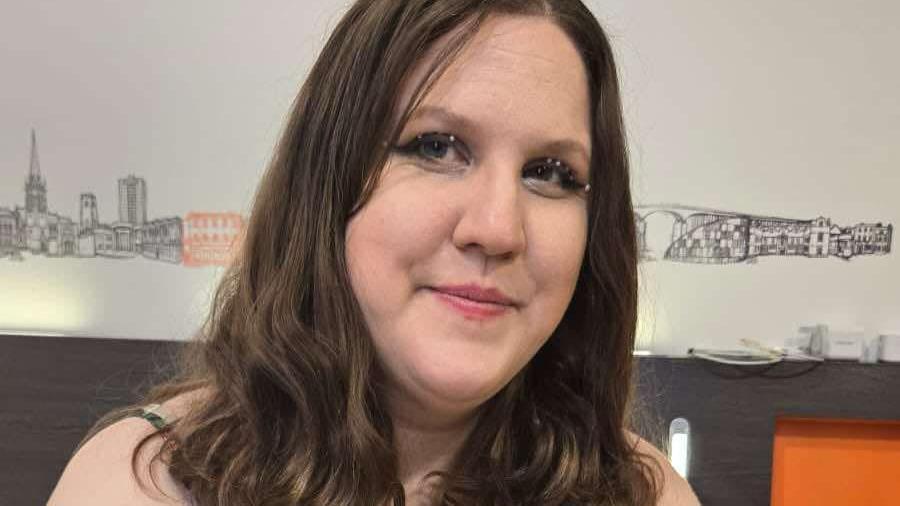
Rachael Bellis has voted in every US election since she moved to London 15 years ago without a problem until this year
- Published
US citizens in London and Europe have called for reforms to election rules after thousands of challenges to their eligibility to vote were lodged, with all being later dropped or rejected.
Under American law, US citizens living overseas can vote in some US elections in the last place they lived, including voting in the presidential race.
However, thousands of absentee ballot challenges were submitted in Pennsylvania minutes before a cutoff, meaning people's votes could not be counted on election day and had to wait for election board hearings to take place.
Rachael Bellis, 37, from London, said that despite her challenge being dropped, she felt it was "unconstitutional" and reform was needed to prevent "spurious" mass challenges being made in future elections.
Mrs Bellis, originally from Hershey in Pennsylvania's Dauphin County, said she was "stunned" when she got an email late on Sunday night, just before polls opened, telling her a local woman she did not know had challenged her vote.
The BBC has contacted the woman for comment.
Mrs Bellis contacted election officials to contest the challenge and was told a mass hearing for more than 100 challenges made by the same woman would be held the following Friday, meaning Mrs Bellis' vote could not be counted until then.
She said the language in the challenge was "quite distressing" and felt like it was designed to make her feel like she had done "something wrong".
It felt like a "deliberate, targeted disenfranchisement of my right to vote", she said.
All the Dauphin County challenges were withdrawn on Wednesday night after the results of the election were declared, but Mrs Bellis said she still wanted rules put in place to prevent "unfair and unconstitutional" mass challenges from happening in the future.
Mrs Bellis said she would like "some sort of deterrent for bad-faith challenges enshrined in law", such as limits on the number of challenges one person could make or background checks on where money came from.
Mrs Bellis said she believed the challenges may have "followed the letter of the law, but not the spirit".
She was unsure if her "challenger paid for all of her challenges herself or not, but there doesn't seem to be a penalty as she's now withdrawn the challenges so will get the money back", she said.
Mrs Bellis has lived in London for 15 years and said she has voted in every other election without a problem, adding "my vote has always counted".
A registered Democrat, her most important issues were the "threat to democracy" of a Trump presidency as well as women's reproductive rights, she said.
Mrs Bellis said she had "concerns about the way the absentee and mail-in ballots had been handled this year, with no explanation of why" and that "it felt targeted".
She did not think the challenges would have changed the election result if successful, but felt "frustrated my voice had not been heard - it is my right".
'Here to stay'
A spokesman for the Pennsylvania branch of the American Civil Liberties Union (ACLU) said the challenges appeared to be part of a coordinated campaign and were a new phenomenon at this election.
"These overseas voters, known as 'federal voters', have every right to participate in elections and any attempt to challenge their eligibility is a clear violation of their rights," the ACLU said.
The spokesman said: "A few Pennsylvania residents began batch-filing thousands of cookie-cutter mass challenges to absentee voters."
"These people are here to stay," he said, adding: "We don't want them making bad law, so we're going to stay on it."
Under Pennsylvania law, voters need to live in the state, or - for overseas voters - need it to have been the last US state they lived in, according to the state government.
Pennsylvanians can challenge a voter's eligibility for a $10 deposit, which is returned if the challenge is upheld by the local board of elections or withdrawn.
However, the ACLU said that more than 4,000 challenges were lodged in 11 mainly marginal voting districts just hours before the election.
The challenges came from a single local person in each county, with each submitting dozens or hundreds of them within a few minutes.
The ACLU said the challenges appeared to be "mass-produced from a database using a 'mail merge' function".
All the challenges have since been withdrawn (in seven cases) or rejected by the local board of elections (four).
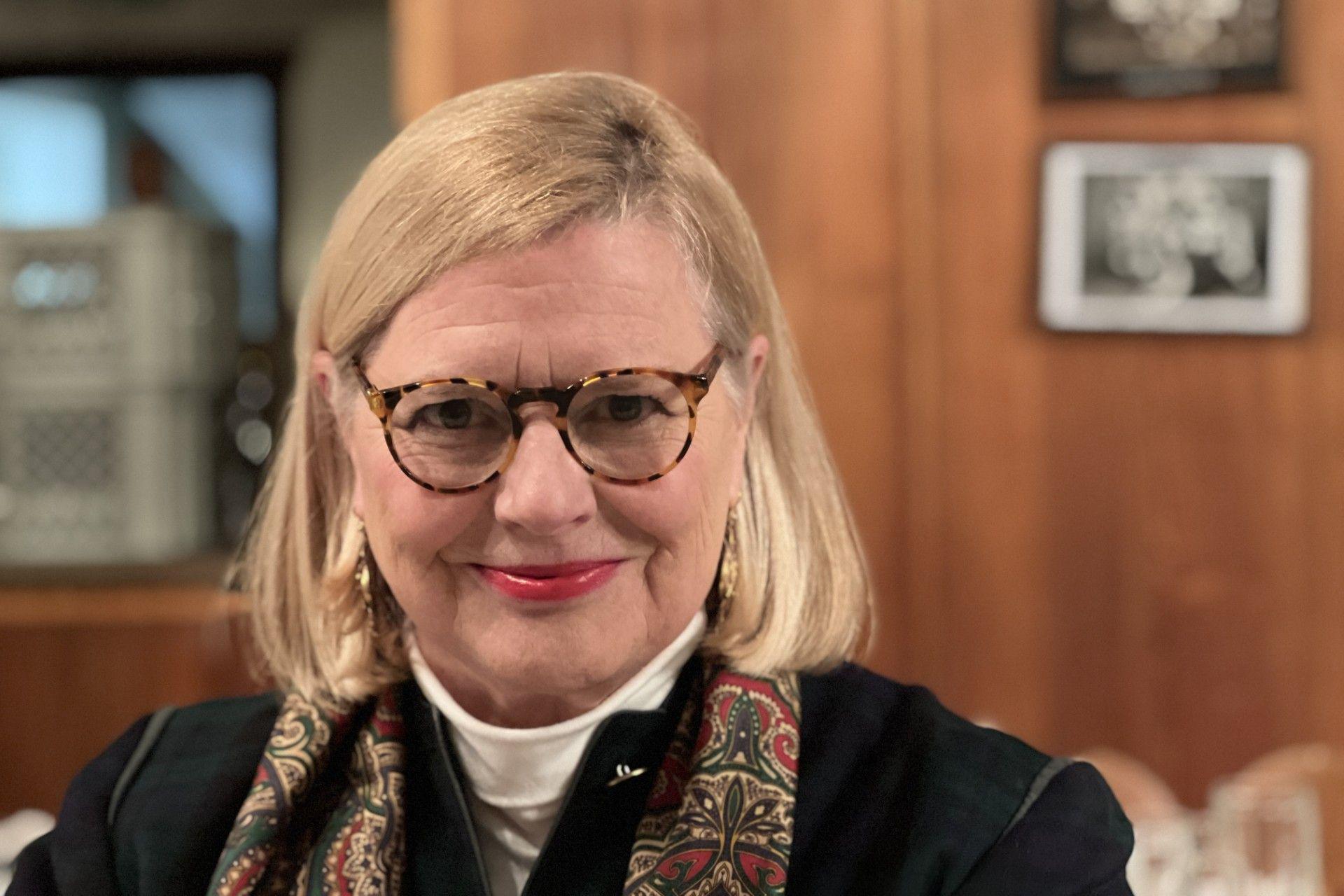
Babette Middlemiss, 73, is from a military family that has lived in her home town of Williamsport for generations
'Unconscionable'
Babette Middlemiss, 73, is originally from one of the last counties to throw out the challenges, Lycoming County, and now lives in Germany.
Her own vote and that of her two sons had been challenged, she said.
"My father was an officer in the US Army. He and his whole family, going back several generations, were Williamsport residents," she said.
Mrs Middlemiss said the challenge was "not only a shock but a heartbreaking disappointment".
"I cannot believe what is happening in my country," she said. "It is unconscionable."
She said nobody should have "the right to disenfranchise" her, and the state should "ensure that ballots like mine be honoured and counted".
"This is the least that a citizen should be able to expect in a democratic system," she said.
'Never whimpered'
Keith Ruhl, a farmer from Lycoming County, spoke on behalf of his 26-year-old son Eric at the board of elections’ hearing, external into the challenges on Friday.
Mr Rule said his son, whose vote was also challenged, planned to one day take over the farm, which had been in the family since 1898.
Eric grew up on the farm, riding his bike and helping his parents with farm work, learning to repair farm machinery, and stacking hay bales in 90-degree heat, but "didn’t whimper one bit", Mr Rule said.
He said his son progressed from fixing machinery on the farm to a mechanical engineering degree and now worked in Norway in the alternative energy industry.
"Not only is this attempted action illegal, it’s unfounded, it’s ludicrous, it’s despicable, and it’s actually obscene," he said.
'Mischaracterisation'
Karen DiSalvo, a lawyer who brought all 71 challenges in Lycoming County, said at the hearing there had been a "complete mischaracterisation" of her intentions.
She said at the hearing she was attempting to fix "a very serious vulnerability" in the registration process and the challenges had not been filed in "bad faith".
She said she did not believe that any of the absentee voters had committed a crime but accused election officials of acting in breach of the law, a claim the election board rejected.
She argued that the absentee voters were not properly registered in Pennsylvania’s electronic voter registration system, a claim that was denied by the election board’s representative.
Mrs DiSalvo said she was acting on her own and not as part of any group; however she did repeatedly refer to "we" in her arguments to the board of elections.
Mrs DiSalvo, who filed the challenges using an email from a group called the Election Research Institute, was previously involved in an unsuccessful lawsuit, external seeking tighter verification procedures for overseas ballots.
Lycoming County's board of elections rejected all 71 challenges with a unanimous 3-0 vote.
Mrs DiSalvo later told the BBC her "goal in filing these challenges was not to 'disenfranchise' voters, but to compel Lycoming County to register these permanently overseas non-military voters as required by federal law".

Meghan Horvath thought the email was a scam when she first saw it
Thought it was scam
Meghan Horvath, 48, from London, said she thought the email was a scam when she first received it as it mentioned a $10 fee and $15,000 fine.
Miss Horvath, originally from Steelton in Dauphin County, said she later assumed she had made a mistake in the paperwork, which made her "feel horrible".
However, an email the next day from the ACLU made her realise she was not alone.
"When I saw [media reports] say it was 4,000 people, I thought '4,000 people couldn’t possibly have messed up their ballots'."
She asked her partner and family in Pennsylvania to read the challenge as "the language was so complicated", before contacting the board of elections but had not received a reply by 9 November.
Miss Horvath said she had lived in London since 2005 and had "never had an issue before".
Like all US citizens, she is required to file a US tax return each year, so she felt it was unfair to have "taxation without representation", she said.
Miss Horvath said she was "very nervous and also angry, thinking 'this is ridiculous'" when she learned about the mass challenges, especially as the state was "important for Trump to win".
Like other Dauphin County voters, the challenge to Miss Horvath's ballot was withdrawn on Wednesday evening.
However, she said she "still wanted to know" which organisation the woman challenging her ballot represented and "where the money came from", adding "though perhaps we will never know".
"I understand the necessity to have the ability to challenge a ballot, but not when there appear to be ulterior motives," she said.
"I’d like to see the law changed to make challenges like this illegal."

Dr Becka McFadden has joint US and UK citizenship and was unable to vote in the UK general election this year because her ballot did not arrive in time
'Double disenfranchised'
Dr Becka McFadden, 42, has joint US and UK citizenship and grew up in Lebanon County, Pennsylvania, before her mother moved to Harrisburg in next-door Dauphin County.
Dr McFadden, who spent 11 years in London but now lives in Prague, said: "At first I was worried I had done something wrong."
She said she got "incredibly angry" when the ACLU told her about the mass challenges, especially as they targeted closely-run contests.
Dr McFadden said: "It just felt incredibly intentional that this person had waited until the last possible moment to file this challenge.
"There's no way the challenge could have been overturned in time for the election."
As a dual citizen, Dr McFadden is entitled to vote in UK general elections as well as US elections but did not receive her postal ballot in time to vote in this year's UK election.
She felt "double disenfranchised", she said.
Dr McFadden said she regretted "not knowing enough" about the disenfranchisement of marginalised voters "until they came for my vote".
She did not feel the challenges would have changed the election result if successful, but felt it was "important that we don't accept these kinds of tactics".
"I guess it's great it's been withdrawn, but it also feels very much like that's happened because their candidate won.
"They had been claiming elsewhere that the concern about unlawful voting was absolutely genuine.
"Now it all just goes away. I think people should know they did this."
She also felt there were "questions to answer" about who organised and funded the challenges.
"If there were 4,000 challenges [across Pennsylvania at $10 each], that’s $40,000. Not a lot of money in US electoral politics, but I am curious where it came from."
Listen to the best of BBC Radio London on Sounds and follow BBC London on Facebook, external, X, external and Instagram, external. Send your story ideas to hello.bbclondon@bbc.co.uk, external
- Published7 November 2024
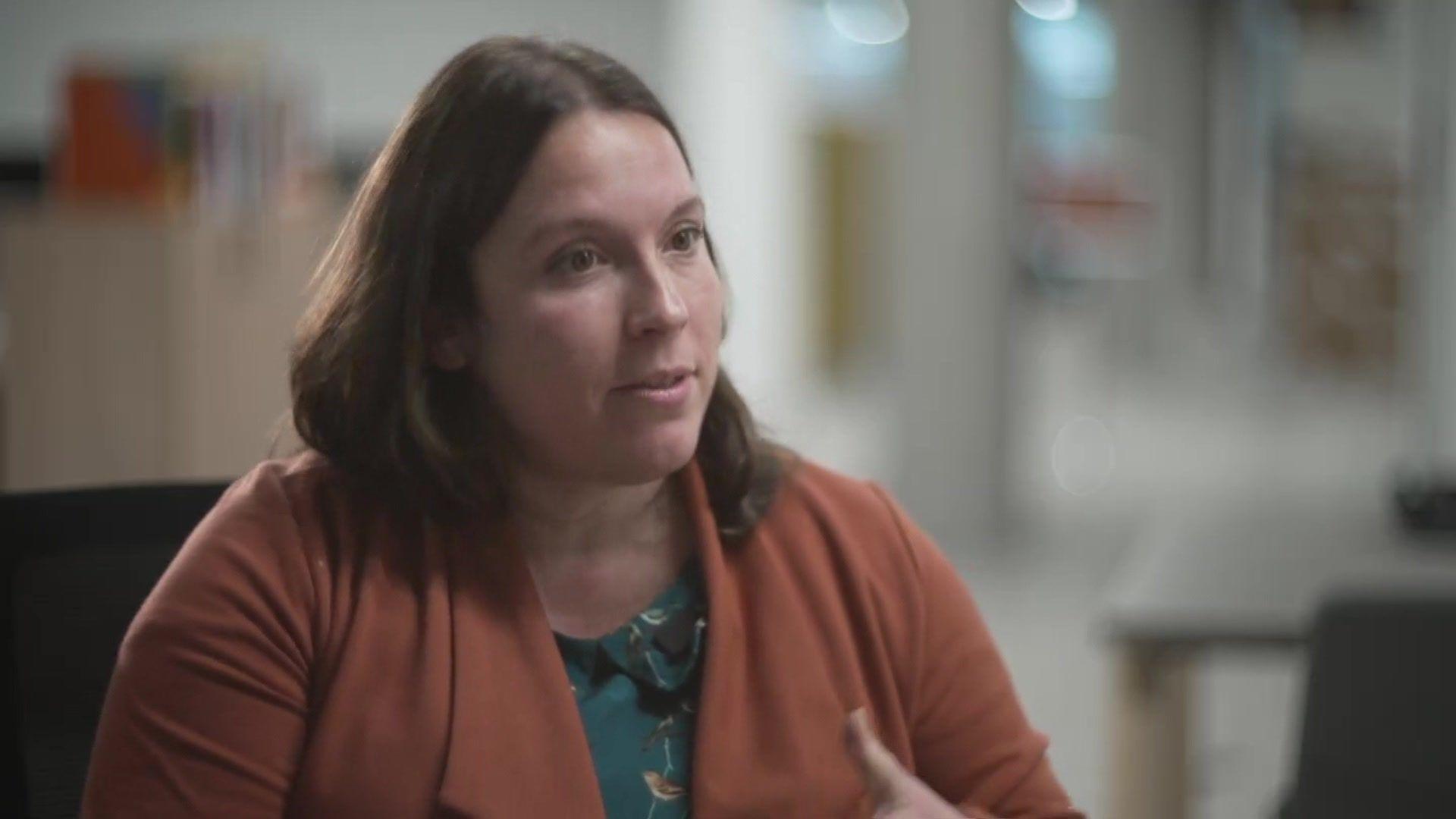
- Published6 November 2024
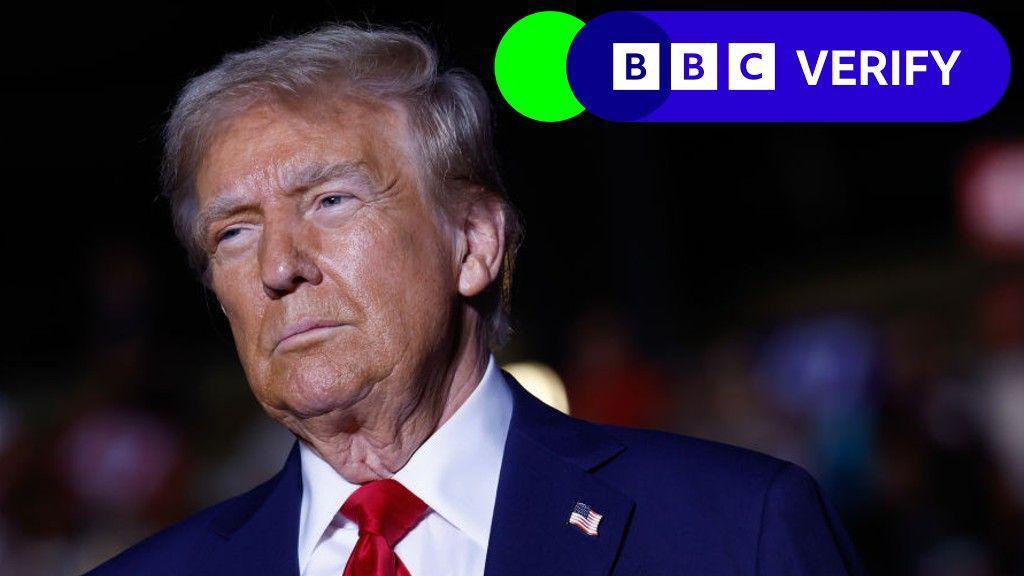
- Published6 November 2024
